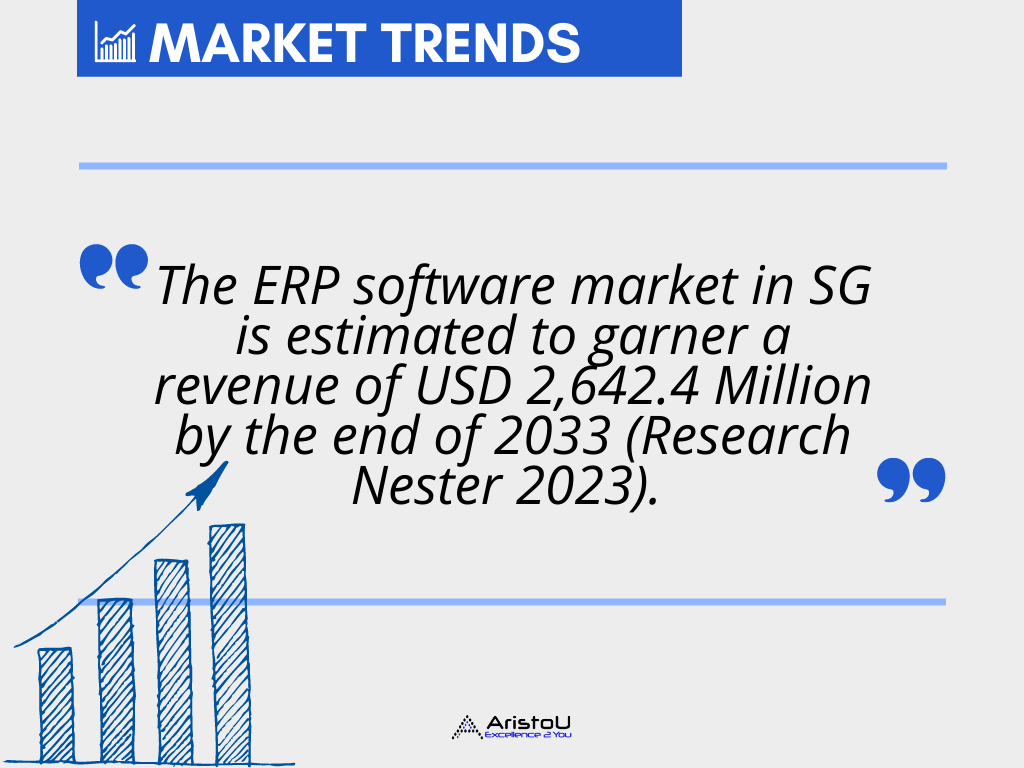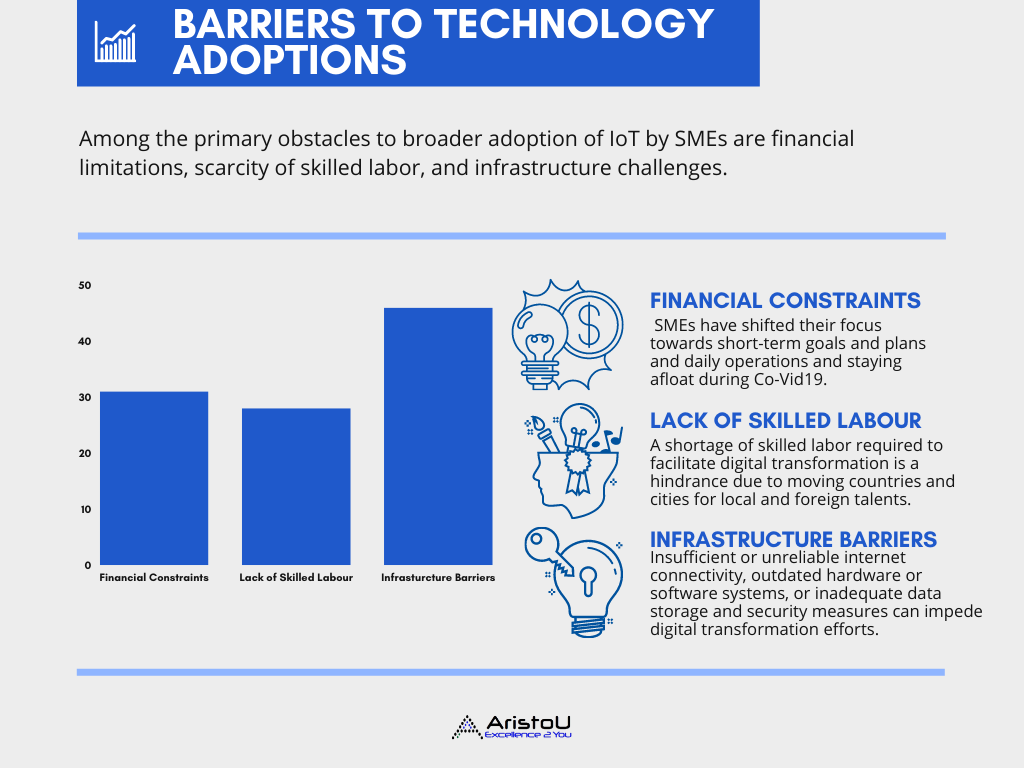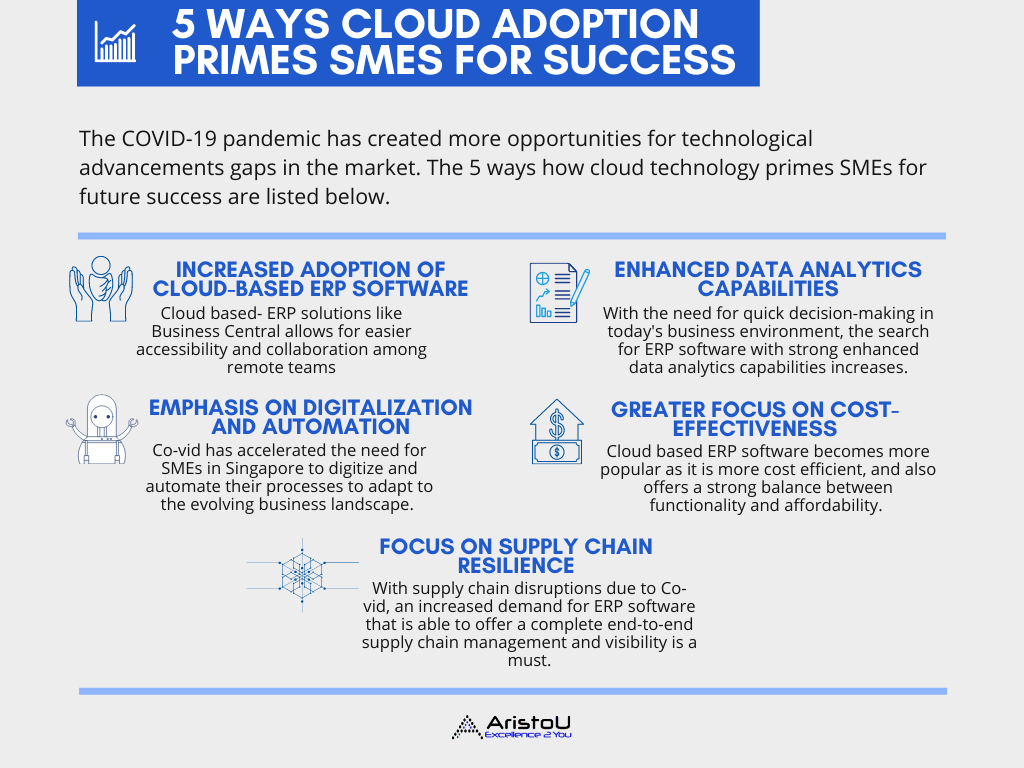COVID-19’s effect on the IT industry and technological advancements.
As the second quarter of 2023 creeps up upon us (yikes), the critical question has become: “Are we out of the woods yet?”
While COVID-19 has ravaged the world for over 2 years, the pandemic has had a significant impact on the global economy leading to changes in the way businesses operate, communicate and serve their customers.
COVID-19 has drastically accelerated the adoption of technology by SMEs in Singapore, driving significant changes in the IT industry. A recent survey (2020) of enterprise decision-makers estimates that COVID-19 has accelerated digital transformation efforts by 6 years.
In particular, the Singapore ERP software market is estimated to garner a revenue of USD 2,642.4 Million by the end of 2033 (Research Nester (2023).
With the pandemic leading to remote work arrangements, supply chain disruptions, and economic uncertainties, many businesses have had to re-evaluate their processes and operations, including their use of ERP software.
With the implementation of lockdown measures, SMEs had to rapidly adapt to a new way of working, relying heavily on technology to facilitate remote collaboration and online transactions.
SMEs also face common challenges like significant disruption, delayed implementations, reduced budgets, and changing customer needs.
Hence, this has led to a shift in the way SMEs use ERP softwares, with many switching up their ERP platforms to those providing more flexible and cloud-based solutions to meet the changing needs of businesses in the post-pandemic world.
In this blog post, we will explore the impact Co-vid has had on SMEs, the barriers to digital technology adoptions by SMEs and 5 ways how technology adoption, especially cloud software is being adopted by companies to navigate these challenges.
The impact of Co-vid on SMEs
The COVID-19 pandemic has resulted in supply chain disruptions and production stoppages, and forcing SMEs to transition to remote work environments with government regulations and guidelines.
The figure below is a snapshot of the overview of companies citing the following impacts Co-vid has had on their business operations activities (World Economic Forum 2021).

Figure 1: Number of companies citing the following impacts of the pandemic on their business operations and activities (COVID-19 and Technology Adoption in Small and Medium-Sized Enterprises: The Impact and the Way Forward 2021)
Barriers to digital technology adoptions by SMEs
Among the primary obstacles to broader adoption of IoT by SMEs are financial limitations, scarcity of skilled labor, and infrastructure challenges.
1. Financial Constraints
-
The most common challenge to digital transformation cited by the surveyed SMEs is financial constraints.
-
Due to uncertainty in the business environment, SMEs have shifted their focus towards short-term goals and plans and daily operations and staying afloat.
-
This may impede future investment plans, including digital modernization efforts.
2. Lack of skilled labor
-
A shortage of skilled labor required to facilitate digital transformation is another hindrance.
-
A capable workforce that can be seamlessly incorporated into digital operations is crucial for achieving a worthwhile ROI in the technology
3. Infrastructure barriers
-
A number of respondents pointed out challenges relating to internet access and speed, and a lack of availability of adequate data centers
-
Eg: Insufficient or unreliable internet connectivity, outdated hardware or software systems, or inadequate data storage and security measures. Such barriers can impede digital transformation efforts and limit businesses to fully experience technology adoption benefits.
In 2020, SMEs were able to apply to their lender to defer 100% of principal repayment of their secured loans until 31 December 2020. To ensure SMEs in emerging markets are competitive, during the pandemic and post-pandemic periods, the Singapore government has introduced strong financial assistance measures in place in the forms of grants to aid SMEs through this crisis.
Some of these initiatives include the Jobs Support Scheme (JSS) to subsidize employee wages, the Enhanced Financing Scheme for SMEs (EFS) to provide working capital loans, the Temporary Bridging Loan Program (TBLP) to assist with cash flow, and the Digital Resilience Bonus (DRB) to encourage SMEs to adopt digital solutions over the last 18 months.
5 ways how Cloud technology adoption primes SMEs for future success
The COVID-19 pandemic has created more opportunities for technological advancements gaps in the market. The 5 ways how cloud technology primes SMEs for future success are mainly: increased adoption of cloud based ERP software, emphasis on digitalization and automation, focus on supply chain resilience, enhanced data analytics capabilities and greater focus on cost-effectiveness.

Figure 2: Importance of Core Business Software for Business Success by Country/Region 2020 (Frost & Sullivan survey of 513 Asia Pacific entrepreneurs) (2021)
1. Increased adoption of cloud-based ERP software
-
With remote work arrangements becoming more prevalent due to the pandemic, many businesses in Singapore have shifted towards cloud-based ERP software.
-
Cloud based- ERP solutions like Business Central allows for easier accessibility and collaboration among remote teams
2. Emphasis on digitalization and automation
-
Co-vid has accelerated the need for SMEs in Singapore to digitize and automate their processes to adapt to the evolving business landscape.
-
This results in an increased demand for technology software that can keep up with all demands and also offers robust automation capabilities.
-
Focus on supply chain resilience
-
Co-vid has exposed weaknesses in global supply chains, causing SMEs in Singapore to prioritize supply chain resilience.
-
With supply chain disruptions and production stoppages due to Co-vid, an increased demand for ERP software that is able to offer a complete end-to-end supply chain management and visibility is a must.
3. Enhanced data analytics capabilities
-
With the need for quick decision-making in the rapidly evolving business environment, the search for ERP software with strong enhanced data analytics capabilities is increasing.
-
This allows SMEs to gain insight into their operational data to make informed decisions.
-
Integration with other technologies, such as AI, ML and IoT is a bonus to enhance operations and improve efficiency.
4. Greater focus on cost-effectiveness
-
Co-vid has led to budget constraints for many SMEs in Singapore, resulting in a greater focus on cost-effectiveness and maximum returns when choosing ERP software with this budget constraint.
-
Cloud based ERP software becomes more popular as it is more cost efficient, and also offers a strong balance between functionality and affordability.
-
Cloud based solutions also do not require money to purchase servers to host solutions or have IT resources on hand to maintain the hardware and software. This keeps your operating costs lower.














Leave a Reply